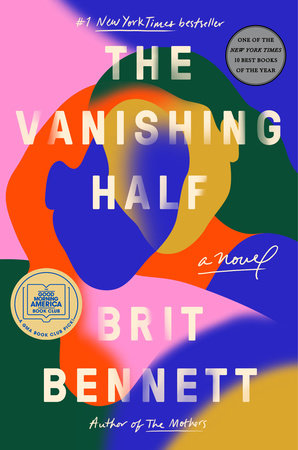The Vanishing Half Reader’s Guide
By Brit Bennett


1. Stella and Desiree Vignes grow up identical and, as children, inseparable. Later, they are not only separated, but lost to each other, completely out of contact. What series of events and experiences leads to this division and why? Was it inevitable, after their growing up so indistinct from each other?
2. When did you notice cracks between the twins begin to form? Do you understand why Stella made the choice she did? What did Stella have to give up, in order to live a different kind of life? Was it necessary to leave Desiree behind? Do you think Stella ultimately regrets her choices? What about Desiree?
3. Consider the various forces that shape the twins into the people they become, and the forces that later shape their respective daughters. In the creation of an individual identity or sense of self, how much influence do you think comes from upbringing, geography, race, gender, class, education? Which of these are mutable and why? Have you ever taken on or discarded aspects of your own identity?
4. Kennedy is born with everything handed to her, Jude with comparatively little. What impact do their relative privileges have on the people they become? How does it affect their relationships with their mothers and their understanding of home? How does it influence the dynamic between them?
5. The town of Mallard is small in size but looms large in the personal histories of its residents. How does the history of this town and its values affect the twins and their parents; how does it affect “outsiders” like Early and later Jude? Do you understand why Desiree decides to return there as an adult? What does the depiction of Mallard say about who belongs to what communities, and how those communities are formed and enforced?
6. Many of the characters are engaged in a kind of performance at some point in the story. Kennedy makes a profession of acting, and ultimately her fans blur the line between performance and reality when they confuse her with her soap opera character. Barry performs on stage in theatrical costumes that he then removes for his daytime life. Reese takes on a new wardrobe and role, but it isn’t a costume. One could say that Stella’s whole marriage and neighborhood life is a kind of performance. What is the author saying about the roles we perform in the world? Do you ever feel you are performing a role rather than being yourself? How does that compare to what some of these characters are doing? Consider the distinction between performance, reinvention, and transformation in respect to the different characters in the book.
7. Desiree’s job as a fingerprint analyst in Washington DC is to use scientific methods to identify people through physical, genetic details. Why do you think the author chose this as a profession for her character? Where else do you see this theme of identity and identification in the book?
8. Compare and contrast the love relationships in the novel –Desiree and Early, Stella and Blake, and Reese and Jude. What are their separate relationships with the truth? How much does telling the truth or obscuring it play a part in the functionality of a relationship? How much does the past matter in each case?
9. What does Stella feel she has to lose in California, if she reveals her true identity to her family and her community? When Loretta, a black woman, moves in across the street, what does she represent for Stella? What do Stella’s interactions with Loretta tell us about Stella’s commitment to her new identity?
Just for joining you’ll get personalized recommendations on your dashboard daily and features only for members.
Find Out More Join Now Sign In